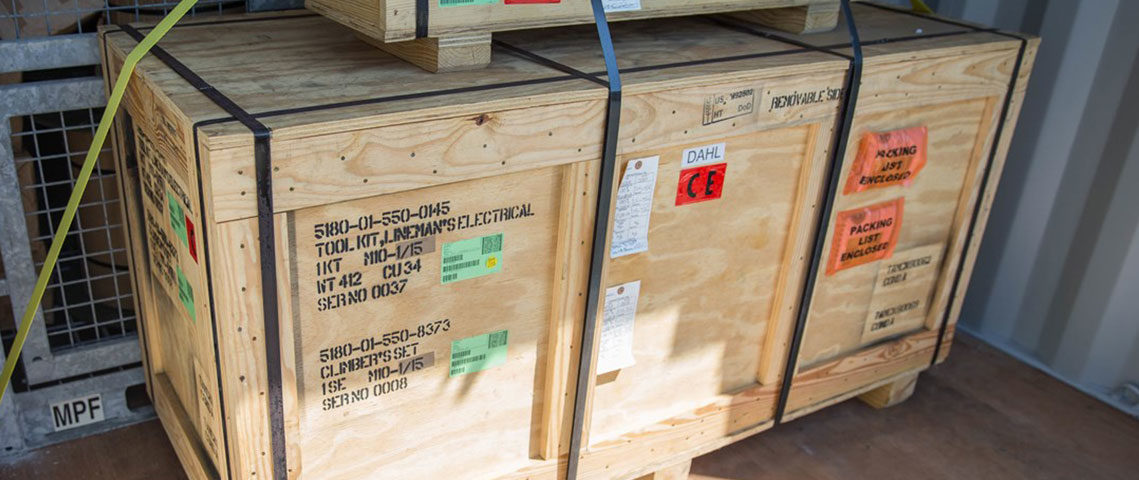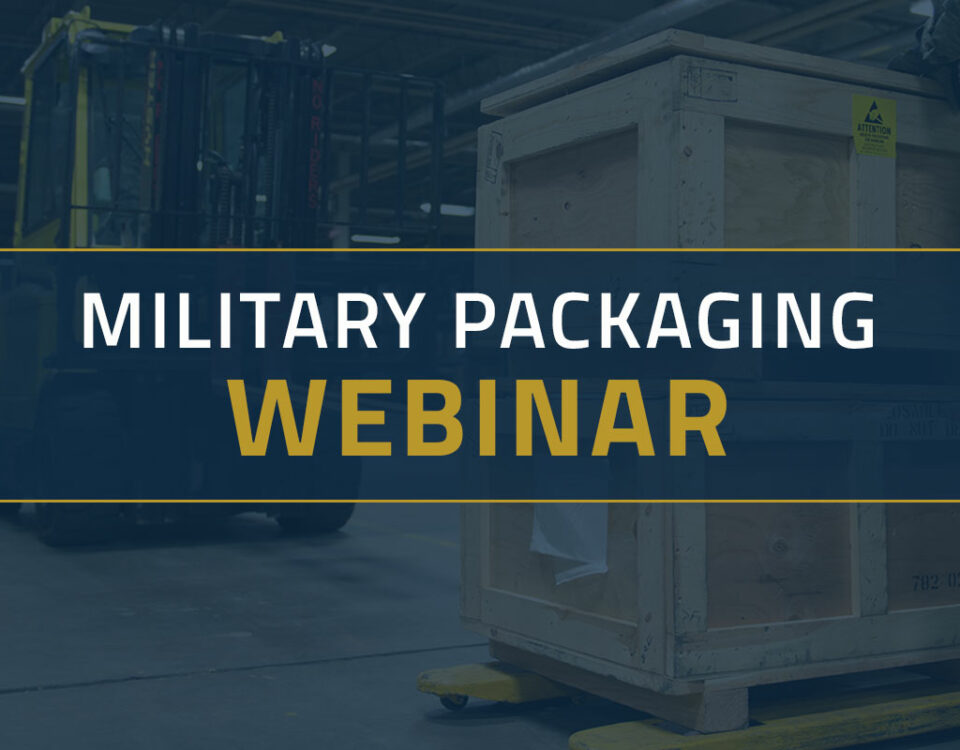The need for military packaging arose from supplies and troops being lost and destroyed during World War II due to inadequate packaging. Commercial packaging and cushioning was not providing the necessary precautions and care that these packages required, thus causing corrosion and damage to shipments due to sand, humidity, and storms. The Department of Defense then set certain requirements in place for those providing supplies to armed forces and government agencies.
The Basics of Military Packaging and Exports
Military packaging and exports can include everything from small parts to large, heavy goods. When packaging and shipping for the military, you must abide by certain compliance measures including MIL-STD-2073, ASTM-D3951 and MIL-STD-129. So, what are each of these compliance measures and why are the important?
MIL-STD-2073
MIL-STD-2073 is the Standard Practice for Military Packaging. This compliance measure is put in place to protect military shipments from any type of corrosion or deterioration, including how to protect shipments from environmentally induced corrosion and deterioration, physical and mechanical damage, and other forms of deterioration and degradation during storage, handling by multiple parties, and shipments that are associated with the military distribution system.
ASTM-D3951
ASTM-D3951 is the Standard Practice for Commercial Packaging. This compliance measure is similar to MIL-STD-2073. It requires packaging to be able to withstand multiple handlings, shipment by any mode, and storage in an enclosed facility for a minimum of one year without damage to the product. This compliance measure also includes that units must be packaged and ready for distribution or redistribution without any additional packaging or markings. This standard is important because it provides a universal standard for all commercial packaging.
MIL-STD-129
Whereas MIL-STD-2073 covers how military shipments are packaged, MIL-STD-129 covers how they are marked for shipment and storage. The Department of Defense requires uniformed markings for shipments. The markings are important because they identify material and trace back to the contractor.
How Bentley Can Help with Military Packaging
These compliance measures can be a bit overwhelming and hard to understand for manufacturers and suppliers, which is why it is important to have a trusted partner like Bentley-World Packaging there to help you with this process. We ensure full military compliances, as well as, site-specific support, working relationships with government agencies (DLA, DCMA, TACOM, NATO and US Embassy), and road crews available to package and export cargo anywhere in the world.
Have a question about military packaging? Bentley can help.




